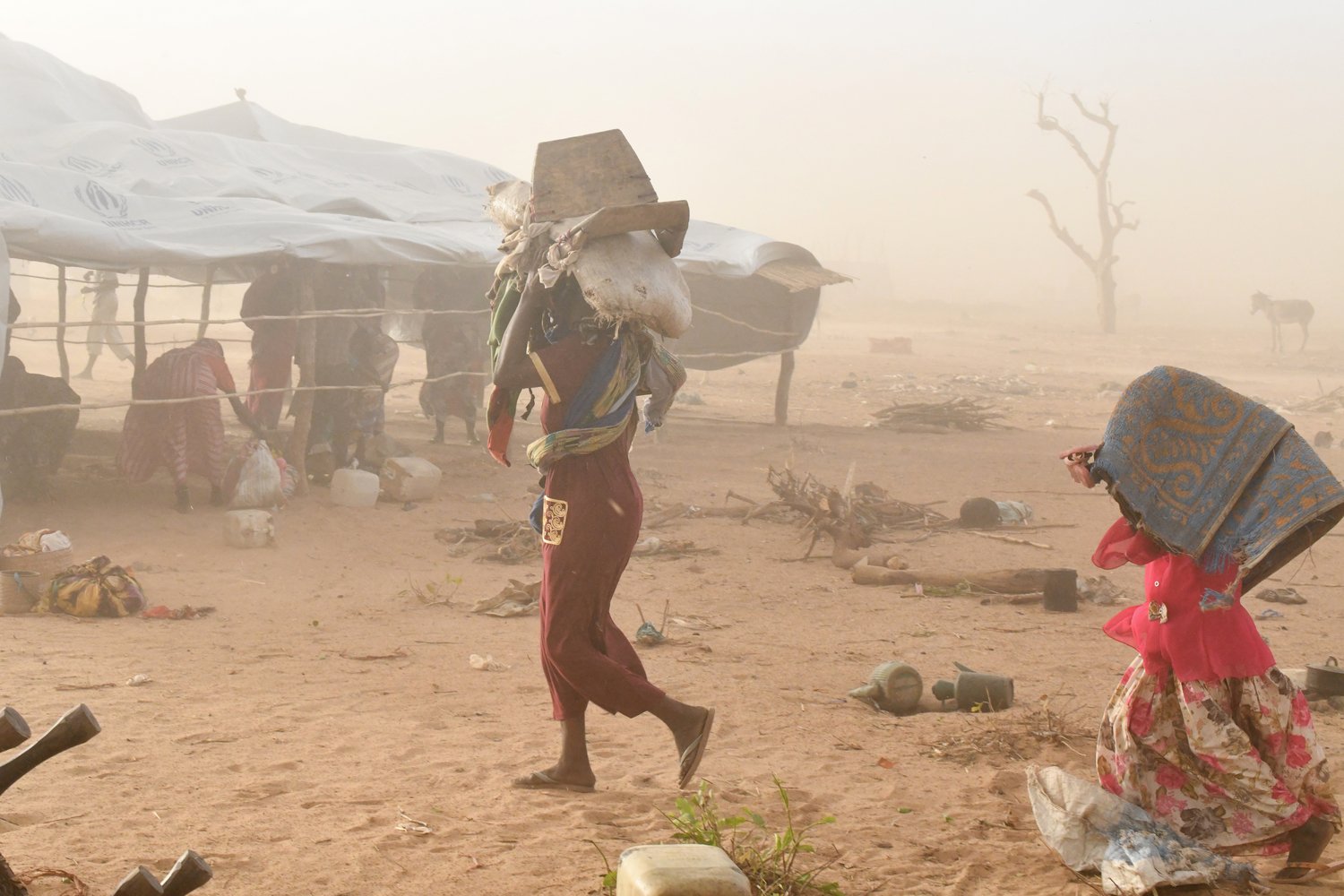Chad emergency airlift underway
Chad emergency airlift underway
UNHCR is mounting an emergency airlift to eastern Chad this week, bringing more than 256 tons of aid supplies to 110,000 Sudanese refugees currently scattered along a 600-km stretch of remote borderland. The airlift coincides with an urgent refugee relocation operation aimed at moving tens of thousands of refugees away from the insecure Chad-Sudan border to safer camps further inland before the start of the rainy season in May. To date, nearly 4,000 refugees have been transported inland to two new camps. Obviously, we've still got a long way to go in this race against time and the elements.
Over the weekend, we flew in a first planeload of plastic sheeting, four transportable warehouses and some four-wheel-drive vehicles from UNHCR's stockpiles in Copenhagen. Starting today, an Ilyushin cargo plane is set to begin daily shuttle flights from Mwanza, Tanzania, to Abéché. A total of seven flights are scheduled this week to deliver 256,128 kg of non-food relief supplies. The supplies include 39,000 blankets, 14,000 kitchen sets, 44,000 jerry cans, and tons of plastic sheeting and soap from UNHCR's regional stockpiles in Ngara, Tanzania.
Meanwhile, UNHCR teams are travelling along the remote northern and southern extremes of the 600-km affected border zone, gathering information about refugees in those areas. A UNHCR team returned this weekend from a two-day evaluation mission in the northern region of Bahai and Bamina. The team drove 30 km north of Bamina and met with a refugee representative who estimated that 6,000 Sudanese refugees are in the area. UNHCR cannot confirm this number as the refugees are scattered across dozens of square kilometres in the area. According to the representative, refugees are moving around the arid area in search of water. He also said some refugees are heading to Touloum, where we have a new site and can provide aid. The UNHCR team said the refugees appeared in good health, but were exhausted. Many fled their homes at short notice and brought very few belongings. They came from the cantons of Karnoi, Oungo, Karat and Dildela and said they fled bombing at the end of January.
According to CNAR (Commission Nationale d'Accueil et de Réinsertion des Réfugiés), another estimated 4,500 refugees are scattered in the Bahai area. UNHCR cannot yet confirm this figure, but is sending a second team to the area today to begin registering the refugees. Local authorities told UNHCR that they recently made funds available to buy oil and sorghum to distribute to the refugees. UNHCR staff in the region saw a lot of dead cattle. It is believed they perished because of a lack of fodder. The team arriving in Bahia today will also check a potential relocation site suggested by the local authorities. It is 88 km west of Bahai and 40 km north of Iriba, in Biltine Province.
In the south, UNHCR staff visited Dagdsa, 100 km south-east of Koukous-Angarana, where they met with the representative of the refugees. He told UNHCR that since last summer, between 17,000 to 20,000 people had left villages in the canton of Kegnou in Sudan following regular militia attacks. Most of these refugees have relatives on the Chadian side who have been providing them with food. Local authorities have also organized food distributions. The refugees are living in makeshift shelters of branches and hay. MSF [Médecins Sans Frontières] teams report that they saw several cases of malnutrition among children in the area. The fragile situation of the refugees shows that the resources of the local population to help them are reaching their limits. UNHCR and its partners need urgently to move them as quickly as possible to camps where they can receive food and other basic assistance.
Also in the southern region, local authorities in Ade have told UNHCR that they have registered 8,115 refugees, scattered along a 135-km stretch of border. UNHCR could not verify this figure. The refugees arrived over the past months, most of them from Sudan's Beida canton. The local authorities also said that militia make regular incursions into Chad to steal cattle, with the latest incursion last Thursday.
Because of the limited water availability in eastern Chad, UNHCR and the local authorities are continuing their search for new sites to be able to relocate as many refugees as possible before the rainy season starts next May.
So far, 2,191 refugees have moved to Touloum transit centre from the Tine area, and 1,699 to Farchana camp from around Adré. The first relocation movement of more than 5,000 refugees to Kounoungo from the Birak area is scheduled in the next two days. Thanks to our partner GTZ [Gesellschaft für Technische Zusammenarbeit], the transit centre part of the Kounoungo site is ready to receive the refugees. GTZ has also started work on the actual camp part of Kounoungo, which should be operational within a week.








